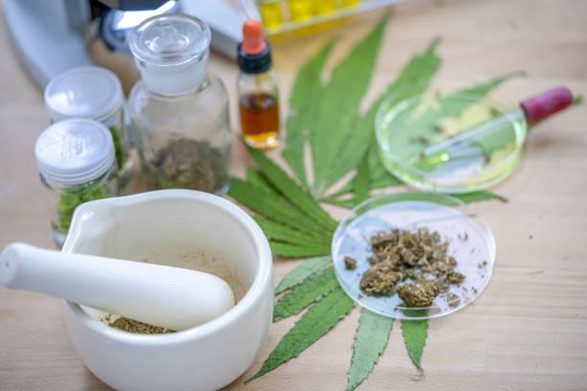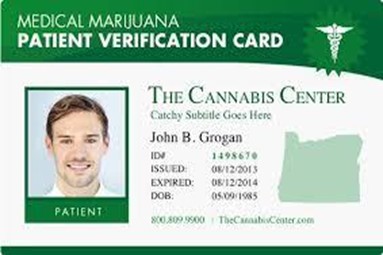Want a Medical Marijuana Card? Don’t know the process of getting it? The following article will give you the details of getting a Medical Marijuana Card, Pa. Let us fill you with a few details of Marijuana and Medical Marijuana Card Pa before telling you how to get it.
The marijuana plant consists of a species of compounds classified as cannabinoids Each of these has a distinct effect on the body. Delta-9-tetrahydrocannabinol (THC) and cannabidiol (CBD) are the basic substances used in medicines. THC is also responsible for the “high” that people get from smoking marijuana or eating marijuana-containing foods.
How Do People Consume It?

- It should be smoked.
- Breathe it using a vaporizer, which converts it to fog.
- Consume it, for sample, in either a cookie or donut.
- Use it as a lotion, spray, oil, or cream on your skin.
- Put a small amount of solvent under your tongue.
- It is ultimately up to you about how you consume it. Each mode has a unique effect on the human body.
What is a Medical Marijuana Card?

A Medical Marijuana card, also inferred as a medical marijuana card, is a government-issued identification card that allows a patient with a doctor’s prescription to attain, retain, or grow marijuana for therapeutic purposes, although marijuana has not been subjected to standard Food and Drug Administration testing for effectiveness and safety.
Who Is Eligible to Get a Medical Marijuana Card in Pennsylvania?
Here is a list of the eligibility criteria and the requirements to get a medical marijuana card in Pennsylvania
What You’ll Require –
- Minimum age of 18 is required.
- You must be a valid Pennsylvania citizen and be able to show proof of residency.
- After an in-person inspection, you must submit a document from a recognized medic.
- If a person has been diagnosed with one of the following health issues, he or she may be eligible for clinician certification as a patient.
Qualifying Health Problems
HIV/AIDS
The efficacy of medicinal marijuana to treat HIV/AIDS conditions was at the heart of some of the initial and most prominent medical cannabis campaigns in the US. It’s no surprise that so many states have approved the treatment for HIV/AIDS patients who are experiencing symptoms including nausea, exhaustion, and appetite loss.
Neurological Abnormalities and Epilepsy
Cannabis has become well-known for its anti-seizure qualities, and it is now legal in almost every state. According to a recent survey, the non-intoxicating marijuana ingredient cannabidiol (CBD) has been found to drastically lower seizures quite so much as 42 percent. Some states are considering legalizing marijuana, especially CBD, for the treatment of pediatric seizures in kids.
Cancer
While research into how cannabis can treat cancer is still ongoing, most states now recognize its ability to alleviate symptoms associated with cancer and chemotherapy, such as pain, nausea, and appetite loss.
Multiple Sclerosis (MS)
People with complex sclerosis are some of the most vocal supporters of the cannabis campaign, as they have direct knowledge of the advantages of the medication. Pain, sleeplessness, inflammation, muscle spasms, stomach discomfort, and depression have all been proven to be relieved by marijuana.
Glaucoma
Glaucoma is an eye disease that, if remain unattended, can result in severe damage to the eye. Though some ophthalmologists are still on the fence about using marijuana to treat glaucoma, non-smoked varieties are becoming more commonly accessible, particularly in areas where it is legalized.
Cachexia/Wasting Syndrome
Cachexia, also known as “wasting syndrome,” is a disease characterized by a loss of appetite and weight, as well as muscle weakness. It is commonly associated with cancer and HIV/AIDS. Given the potential for cannabis—particularly THC-rich varieties—to help treat like these, it’s no wonder that cachexia is one of the diagnostic criteria in so many jurisdictions.
Post-Traumatic Stress Disorder (PTSD)
Panic attacks and hypervigilance, as well as mood and sleep difficulties, are common symptoms of post-traumatic stress disorder (PTSD). Marijuana can help with PTSD-related discomfort when used in the proper dose and with significant concentrations of CBD. Patients have also reported that using weed before sleep helps them relax, actually sleep longer, and reduce nightmares.
Any other repeated or prolonged medical symptoms that impair someone’s ability to carry out substantial existence actions are among the medical problems.
The Basic Process to get a Medical Marijuana Card in Pennsylvania?
There are four fundamental steps to obtain medical marijuana through Pennsylvania’s medical marijuana program:
- The Medical Marijuana Registry is where you may sign up for the program.
- Have a doctor attest that you incur from one of the qualifying medical conditions mentioned above for medical marijuana.
- Purchase a medicinal marijuana identification card.
- In Pennsylvania, you can get medical marijuana from a licensed dispensary.
The Process to Get the Medical Marijuana Card Pa in Detail:
To obtain a medical marijuana card in Pennsylvania follow these steps.
Registration:
Getting Started for the First Time
- Create an account with the Medical Marijuana Registry.
- To create a patient profile, go to the Patient and Caregiver Registry and fill out your information.
- Basic information such as your legal name, current address, and contact information are included in this profile.
- A Pennsylvania driver’s license or an ID card issued by the Pennsylvania Department of Transportation is required to submit for the medical marijuana program.
Authorized Medical Practitioners:
In Pennsylvania, doctors who suggest medical marijuana must enroll with the Health Department. If your present doctor isn’t on the Department of Health’s list of approved doctors, you can find one here.
Proceed to the Medical Marijuana Registry and pay for your medical marijuana ID card once you’ve been verified by an authorized doctor.
Payment Details and Process:
- Go to the Medical Marijuana Registry and finish your request for a medical marijuana ID card after you’ve been verified by an authorized doctor.
- A medical marijuana card Pa costs $50.
- Fee concessions may be available for patients who are active in aid programs such as Medicaid, PACE/PACENET, CHIP, SNAP, or WIC.
- The Pennsylvania Department of Health will provide you your medical marijuana card via mail.
Registration Renewal:
- Thirty days before your regular payment is due, you’ll get a mail with instructions on how to pay.
- The due date on this email is normally about a week before the medical marijuana card’s expiry date.
- The medical marijuana card Pa will be canceled automatically if payment is not received by that date.
- The card is immediately renewed after your login and pay the annual fee.
Medical Marijuana Caregivers:
- You can name up to two caregivers on your patient application to help you get medical marijuana.
- A spouse, parent, or friend could act as a caregiver. The caregiver should accompany patients under the age of 18.
- Before being authorized for the medicinal marijuana program, caregivers must also enroll and pass a background check.
Final Thoughts: Benefits of Medical Marijuana Card
Here are some benefits of medical marijuana card:
1. Reduced Prices and Tax Rates
Lowering the cost of cannabis for patients is a major benefit provided by many states’ medical dispensaries, which is critical for people who rely on cannabis for medical issues. Assume requiring life-improving medication but not having it insured is the actuality for medical marijuana patients across the nation
If your medicine was also heavily taxed and thus very costly because it also served as a recreational pleasure for so many people—that is the scenario for patients if they only had access to social facilities.
2. Limits on Higher Efficacy
When it comes to health care marijuana, the dosage is crucial, and many patients require access to high cannabis to relieve pain. While recreational shops must adhere to efficacy limits, medical patients occasionally have more leniency.
